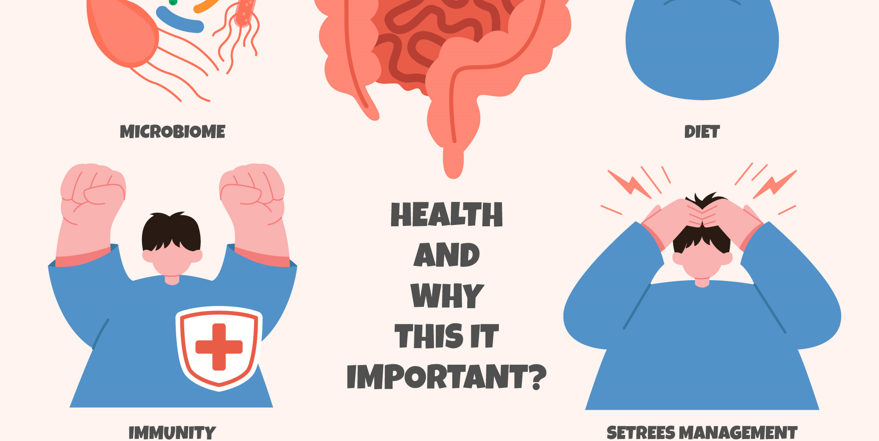The gut-brain axis represents a complex bidirectional communication network between the gastrointestinal tract and the brain, influencing various physiological processes, including mood regulation. Recent research has shed light on the profound impact of gut health on mental well-being, highlighting the interconnectedness of the digestive system and emotional health.
The Influence of Gut Microbiota on Mental Health:
-
Microbial Diversity and Mood Regulation:
-
The gut microbiota, comprised of trillions of microorganisms, plays a crucial role in maintaining gastrointestinal homeostasis and modulating immune function.
-
Emerging evidence suggests that alterations in gut microbial composition, known as dysbiosis, may contribute to the development of mood disorders such as depression and anxiety.
-
-
Neurotransmitter Production and Signaling:
-
Gut microbes produce a variety of neurotransmitters and neuroactive compounds, including serotonin, dopamine, and gamma-aminobutyric acid (GABA), which are involved in mood regulation and emotional balance.
-
Dysregulation of neurotransmitter production in the gut can disrupt communication along the gut-brain axis, potentially influencing mood and behavior.
-
The Role of Fermented Foods in Gut Health and Mood:
-
Probiotics and Gut Microbiota Diversity:
-
Fermented foods such as yogurt, kefir, and kimchi contain beneficial probiotic bacteria that can enhance gut microbiota diversity and promote digestive health.
-
By incorporating fermented foods into the diet, individuals may support a healthy gut microbiome, potentially exerting positive effects on mood and emotional well-being.
-
-
Short-Chain Fatty Acids and Brain Health:
-
Fermented foods contribute to the production of short-chain fatty acids (SCFAs) in the gut, which serve as energy sources for colonocytes and play a role in immune regulation and inflammation.
-
SCFAs may also influence brain function and behavior through their interactions with the central nervous system, offering potential therapeutic benefits for mental health disorders.
-
The gut-brain axis represents a fascinating frontier in understanding the interplay between digestive health and emotional well-being. By nurturing a healthy gut microbiome through dietary interventions such as fermented foods and probiotics, individuals can potentially support mental health and mood regulation. Further research into the gut-brain axis holds promise for developing innovative approaches to mental health care and holistic wellness.
Related Articles:




